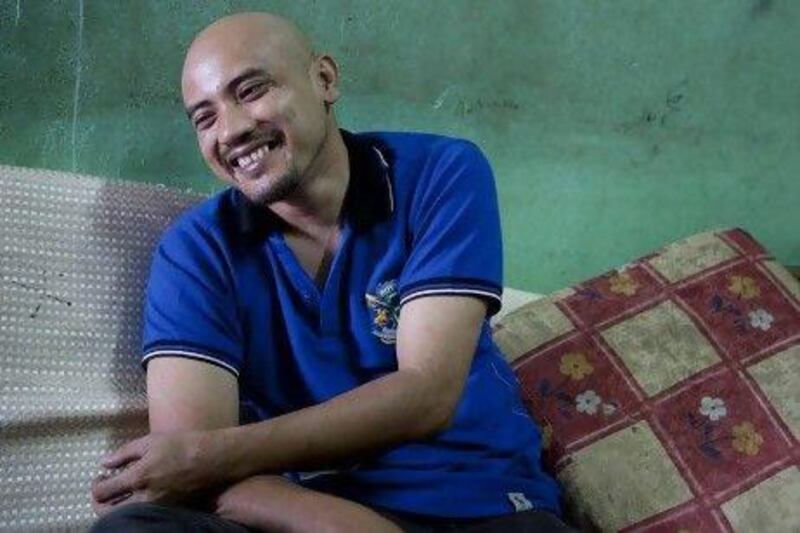SUNGAI BULOH, MALAYSIA // A Malaysian wildlife trader held captive by suspected Abu Sayyaf militants for a year in the southern Philippines says he saw group members as young as 15 skilled in using M16 rifles that were prevalent in the impoverished region.
Nazarrudin Saidin's account gives a rare glimpse into the operations of the Al Qaeda-linked militant group, blamed for many ransom kidnappings, bomb attacks and beheadings over more than two decades.
It also details an ordeal that started in May of last year when masked gunmen abducted Mr Nazarrudin on the Philippine island of Jolo, moving him to hideouts on other islands over the following 12 months. He escaped at one point and hid in a mangrove, only to return to his kidnappers out of hunger - "I felt like I was on the verge of dying". He finally escaped to safety two weeks ago.
"I saw teenagers as young as 15 walking around in the villages with M16 rifles and pistols," Mr Nazarrudin said in a small, rundown home just north of Kuala Lumpur, where he lives with his wife, six children and parents near a palm oil plantation.
"Sometimes they practised shooting in the jungle and seemed skilful in handling the weapons," he said, adding that he believed they were Abu Sayyaf members.
A 2011 UN report said other former Abu Sayyaf captives also have reported children in the group's ranks, but that the claims "could not be verified owing to security constraints". Photographs and television footage taken inside Abu Sayyaf camps have appeared to confirm the presence of armed teenagers.
Abu Sayyaf has not commented publicly on child soldiers, but other militant Muslim groups in the Philippines have described a policy of admitting youths as young as 15 as trainees, while requiring them to be 18 before engaging in combat.
Abu Sayyaf's stated goal is a separate Islamic state in the south of the mainly Catholic Philippines, though its fighters from impoverished villages are attracted more by ransom money than ideology.
US-backed military strikes have weakened the group, which now numbers about 400 by military estimates, but it's still considered a threat to regional security and is currently suspected in the kidnapping of a former Australian soldier and a Japanese.
Mr Nazarrudin said he saw only light weapons and machetes among his captors. He was mainly held indoors and did not know who the Abu Sayyaf leaders were. He said he rarely saw regular villagers, but his captivity for long stretches in various places indicated the militants still had the tacit support of communities in the region.
"I told them many times that I am not a rich man but they wanted money. They said they are poor and oppressed by their government but [I believe] as Muslims, they shouldn't do such things," he said.
The Abu Sayyaf raised US$704,000 (Dh2.6 million) in 11 kidnappings in 2010 and killed six Filipino hostages whose families failed to pay a bounty, according to a the government.
Mr Nazarrudin, a former lorry driver, apparently went to Jolo to obtain geckos, which are used in many Asian countries for medicines and tonics and are popular in the global pet trade.
He was sleeping in a friend's house one night when gunman stormed in and took him. He was handcuffed and forced to walk for hours in the dark to a village in the jungle, where he was kept in a hut. His captors removed his handcuffs after two weeks and fed him vegetables and sometimes fried rice.
A Philippine military official said the militants would not likely have harmed Mr Nazarrudin because of concerns it may prompt a backlash against thousands of Filipinos working nearby in Malaysia's eastern Sabah state on Borneo island.
Last week, Nazarrudin flew back to Kuala Lumpur for a tearful family reunion.
"This experience has made me a better man but I will never return to the Philippines again," he said.





